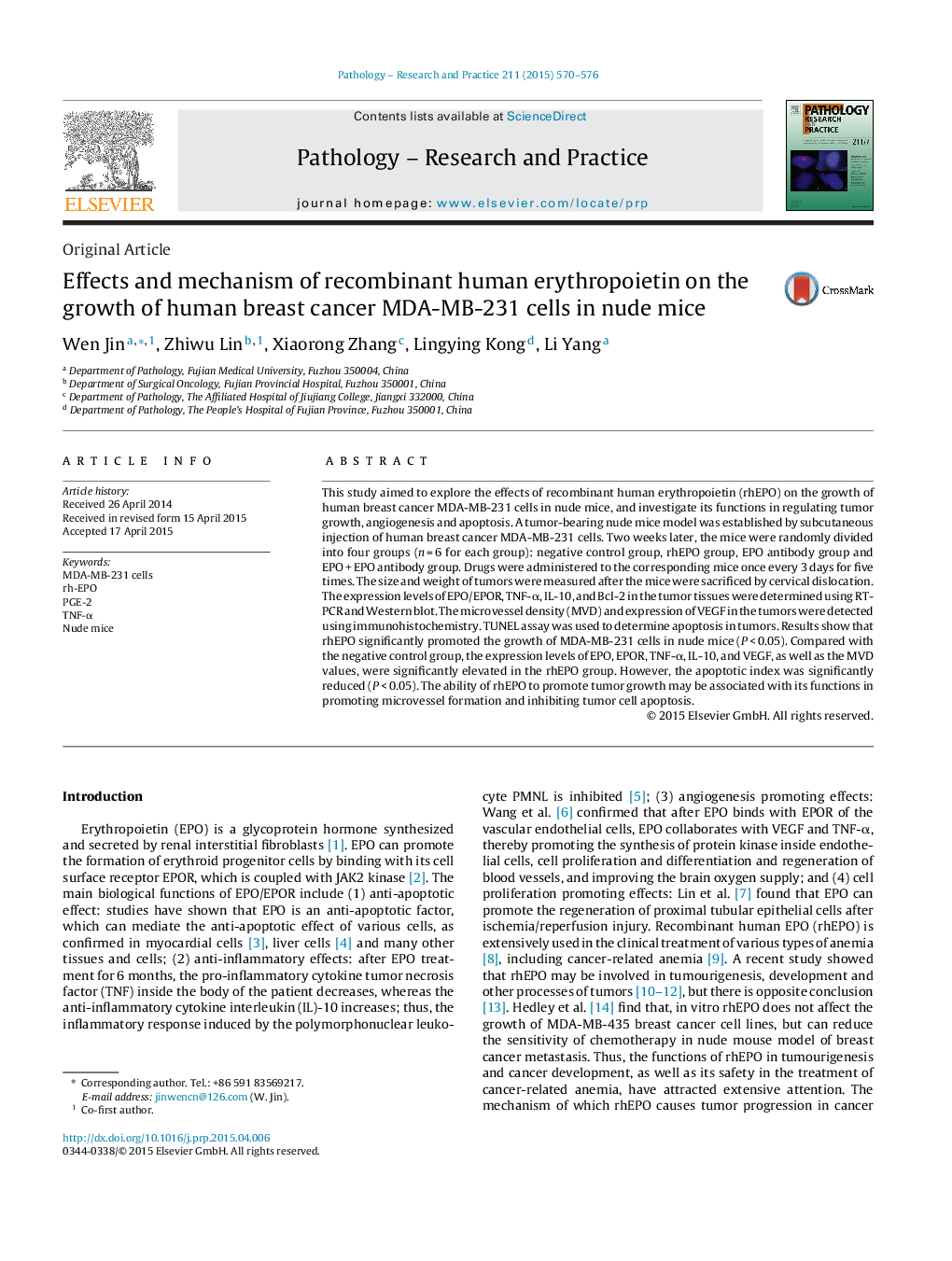| Article ID | Journal | Published Year | Pages | File Type |
|---|---|---|---|---|
| 2155095 | Pathology - Research and Practice | 2015 | 7 Pages |
This study aimed to explore the effects of recombinant human erythropoietin (rhEPO) on the growth of human breast cancer MDA-MB-231 cells in nude mice, and investigate its functions in regulating tumor growth, angiogenesis and apoptosis. A tumor-bearing nude mice model was established by subcutaneous injection of human breast cancer MDA-MB-231 cells. Two weeks later, the mice were randomly divided into four groups (n = 6 for each group): negative control group, rhEPO group, EPO antibody group and EPO + EPO antibody group. Drugs were administered to the corresponding mice once every 3 days for five times. The size and weight of tumors were measured after the mice were sacrificed by cervical dislocation. The expression levels of EPO/EPOR, TNF-α, IL-10, and Bcl-2 in the tumor tissues were determined using RT-PCR and Western blot. The microvessel density (MVD) and expression of VEGF in the tumors were detected using immunohistochemistry. TUNEL assay was used to determine apoptosis in tumors. Results show that rhEPO significantly promoted the growth of MDA-MB-231 cells in nude mice (P < 0.05). Compared with the negative control group, the expression levels of EPO, EPOR, TNF-α, IL-10, and VEGF, as well as the MVD values, were significantly elevated in the rhEPO group. However, the apoptotic index was significantly reduced (P < 0.05). The ability of rhEPO to promote tumor growth may be associated with its functions in promoting microvessel formation and inhibiting tumor cell apoptosis.
